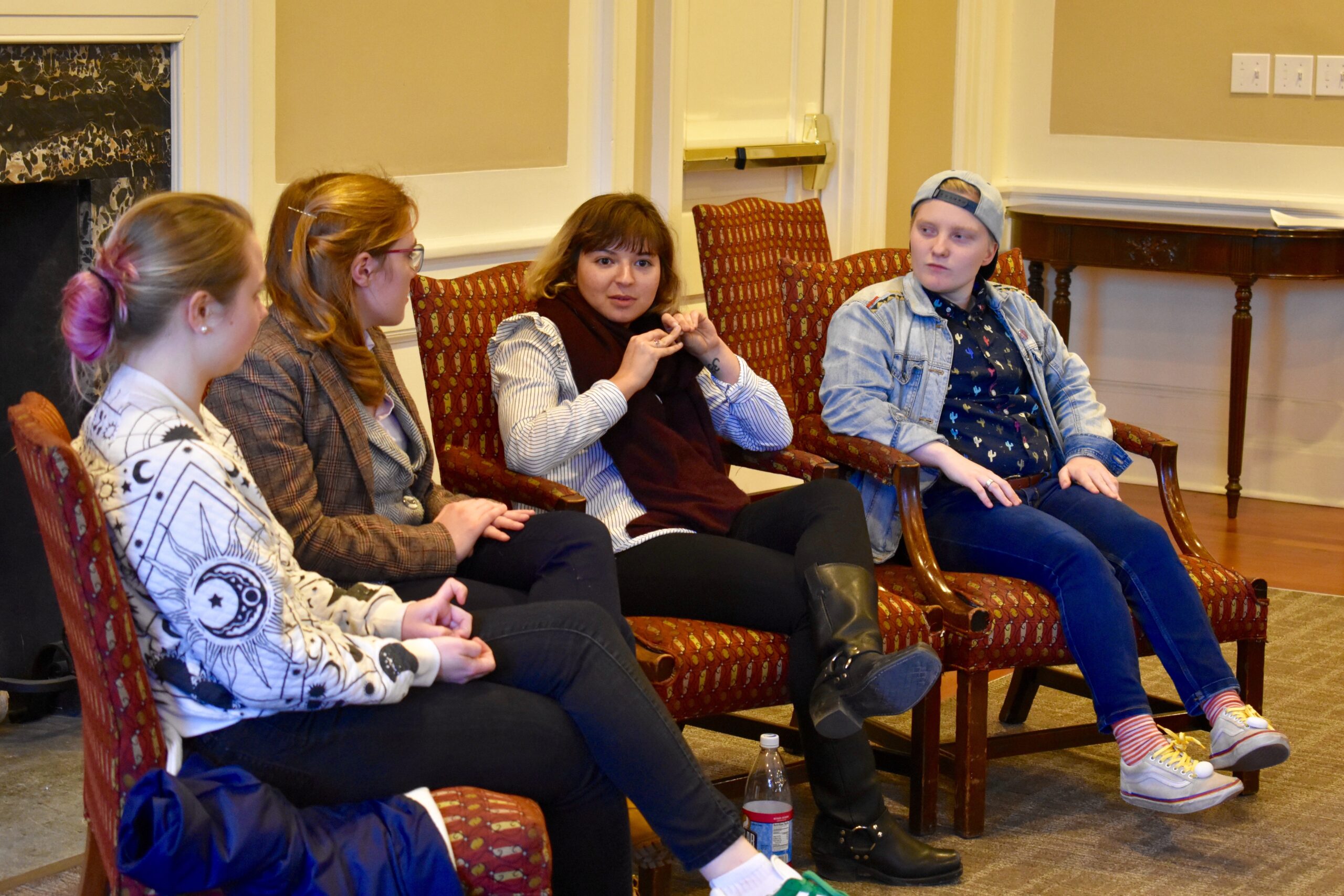Panel outlines student experiences with accomodations, disability
March 2, 2018
 Aleksia Silverman
Aleksia SilvermanAmid ongoing efforts to improve Bowdoin’s handling of accommodations and disability, students, faculty and staff convened in Lancaster Lounge this week to hear four student panelists speak about their experiences navigating accessibility at Bowdoin, particularly accessibility in academics, and potential steps toward creating a more accessible campus.
Zoe Borenstein ’18, a leader of the Disabled Students Association (DASA), organized the panel to make space for openness and honesty about students’ experiences with disabilities, with the goal of informing and producing real change.
“I think we really succeeded in doing that, but I was really clear from the start that I wasn’t going to sugarcoat anything,” Borenstein said. “We wanted to frame it as something that would be really helpful to faculty, something that would help them help us, all based on the assumption that they want their classes to be accessible and that they can really learn from student experiences.”
Students on the panel were of different class years and have had a range of experiences regarding accessibility and accommodations at Bowdoin. Some panelists talked about faculty expressing an eagerness to understand the issues that their students faced and to make their classes as accessible as possible. Others talked about negative experiences they have had while navigating Bowdoin with disabilities, particularly during their first year, when they may not have been aware of available accommodations.
The panel is one of several efforts on the part of students and the College—such as DASA, the Accessibility Task Force and the Office of Accommodations for Students with Disabilities—to improve Bowdoin’s institutional support for students with disabilities so that students can more easily secure accommodations. This September, the College convened the Accessibility Task Force, a reincarnation of the Americans with Disabilities Act Committee which had not met for close to two years. The Task Force is group of administrators, faculty and staff from departments across campus with the goal of looking at accessibility across areas such as academics, digital technology and physical access. The Office of Student Affairs also made the Dean for Accommodations for Students with Disabilities a singular position, rather than a responsibility shared with others, as it had been in the past.
Borenstein explained that, although it is important to have staff members exclusively dedicated to implementing accommodations, bridging the gap between students and faculty around discussions of accommodations is an important step in approaching this issue.
“All I ever wanted from some of the really terrible experiences that I had when I was a freshman… was to prevent it from ever happening to somebody else,” said Borenstein. “So many of the issues that I faced could’ve been avoided if there’d been better communication.”
After having conversations with faculty members, including those who are on the Accessibility Task Force, Director of Accommodations for Students with Disabilities Leslie Levy approached DASA leaders Borenstein and Daisy Wislar ’18 with the idea for the panel. It developed as a collaboration between DASA and the Office of Accommodations for Students with Disabilities. The panel was advertised to the whole campus community, and students who receive academic accommodations were encouraged to personally invite any of their professors whom they wanted to attend the panel.
This semester, the Accessibility Task Force has been working to determine solutions for problems faced by students who need accommodations.
Also this semester, Bowdoin revised the Faculty Guide to Student Accommodations, which is sent to every member of the teaching faculty who has a student in their class with academic accommodations. The new version will soon be available online. The guide includes information about the universal design model, which could make classes more accessible for all students who have a variety of different learning styles and needs. The model also came up in discussion at the panel as a curriculum strategy.
“The universal design model means thinking about access for all students from the development of a course,” Levy said. For example, making use of subtitles during class film viewings can be useful to many different types of learners.
“[Using subtitles] of course helps students who may be deaf or have hearing impairments, but it also might help many other types of learners… I see that as a universal design that doesn’t give anyone an advantage but might benefit many people in the course,” she said.
To Borenstein, such curriculum design strategies have the potential to give “students more flexibility or more freedom with their assignments to accommodate needs without having to implement accommodations.”

Comments
Before submitting a comment, please review our comment policy. Some key points from the policy: